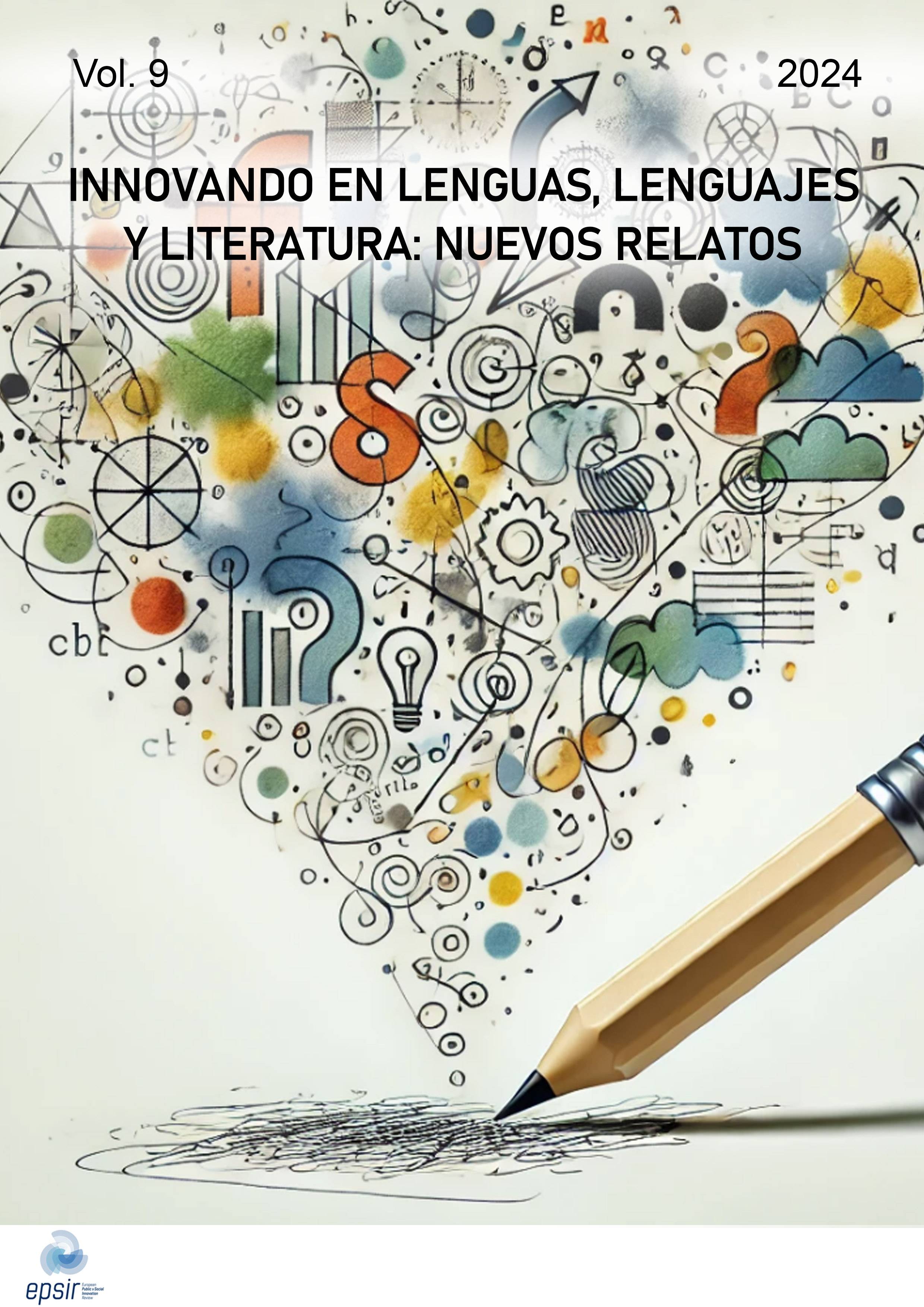Innovating in languages, languages and literature: New stories
DOI:
https://doi.org/10.31637/epsir-2024-1741Keywords:
Literary translation, Emerging languages, Visual narratives, Comparative philology, Strategic storyAbstract
This monograph explores how technological and sociocultural innovations are transforming languages, language systems, and literature. It addresses the role of translation in promoting gender equality and human rights, and how emerging languages, especially on social media, are creating new linguistic codes. It analyzes the influence of artificial languages in literature and the philosophy of language, as well as the impact of digital platforms in creating new narratives. The teaching of foreign languages also plays a crucial role, highlighting the use of new technologies and hybrid approaches. Additionally, it explores comparative philology and the use of archaisms, the relationship between literary and visual narratives, and the analysis of psychological narratives. Finally, it examines strategic storytelling in digital advertising, highlighting how brands are creating new stories that redefine consumer identity.
Downloads
References
Achón Lezaun, I., & Valiente Mingotes, S. (2021). La traducción de lo indecible en «The Fall of the House of Usher» de Edgar Allan Poe y la traducción de Julio Cortázar. ACTIO NOVA: Revista De Teoría De La Literatura Y Literatura Comparada, (Monográfico 5), 26–55. https://doi.org/10.15366/actionova2021.m5.002 DOI: https://doi.org/10.15366/actionova2021.m5.002
Casal, S. S., & López, S. R. (2021). Aprendizaje conectado en redes sociales. Psychology, Society & Education, 13(1), 1-8. https://doi.org/10.25115/psye.v1i1.2485 DOI: https://doi.org/10.25115/psye.v1i1.2485
Molina, J. A. (2013). Imagen-palabra: texto visual o imagen textual. En Actas del Congreso Iberoamericano de las Lenguas en la Educación: las lenguas en la educación, cine, literatura, redes y nuevas tecnologías (pp. 97-104). Secretaría General Técnica. http://hdl.handle.net/11162/104226
Ramírez Leyva, E. M. (2012). La incorporación de la cultura digital en las prácticas de lectura de los estudiantes de bachillerato de la UNAM. Investigación bibliotecológica, 26(56), 43-69. https://tinyurl.com/2bz97xwv DOI: https://doi.org/10.22201/iibi.0187358xp.2012.56.33013
Troncoso Pérez, L., Galaz Valderrama, C., & Alvarez, C. (2017). Las producciones narrativas como metodología de investigación feminista en Psicología Social Crítica: Tensiones y desafíos. Psicoperspectivas, 16(2), 20-32. https://tinyurl.com/24ylbojs DOI: https://doi.org/10.5027/psicoperspectivas-Vol16-Issue2-fulltext-956

Downloads
Published
How to Cite
Issue
Section
License
Copyright (c) 2024 Edurne Goñi Alsúa, Enrique Ortiz Aguirre, Marta Martín Gilete

This work is licensed under a Creative Commons Attribution-NonCommercial-NoDerivatives 4.0 International License.
Authors who publish with this journal agree to the following terms:- Authors retain copyright and grant the journal right of first publication with the work simultaneously licensed under Creative Commons Non Commercial, No Derivatives Attribution 4.0. International (CC BY-NC-ND 4.0.), that allows others to share the work with an acknowledgement of the work's authorship and initial publication in this journal.
- Authors are able to enter into separate, additional contractual arrangements for the non-exclusive distribution of the journal's published version of the work (e.g., post it to an institutional repository or publish it in a book), with an acknowledgement of its initial publication in this journal.
- Authors are permitted and encouraged to post their work online (e.g., in institutional repositories or on their website) prior to and during the submission process, as it can lead to productive exchanges, as well as earlier and greater citation of published work (See The Effect of Open Access).


